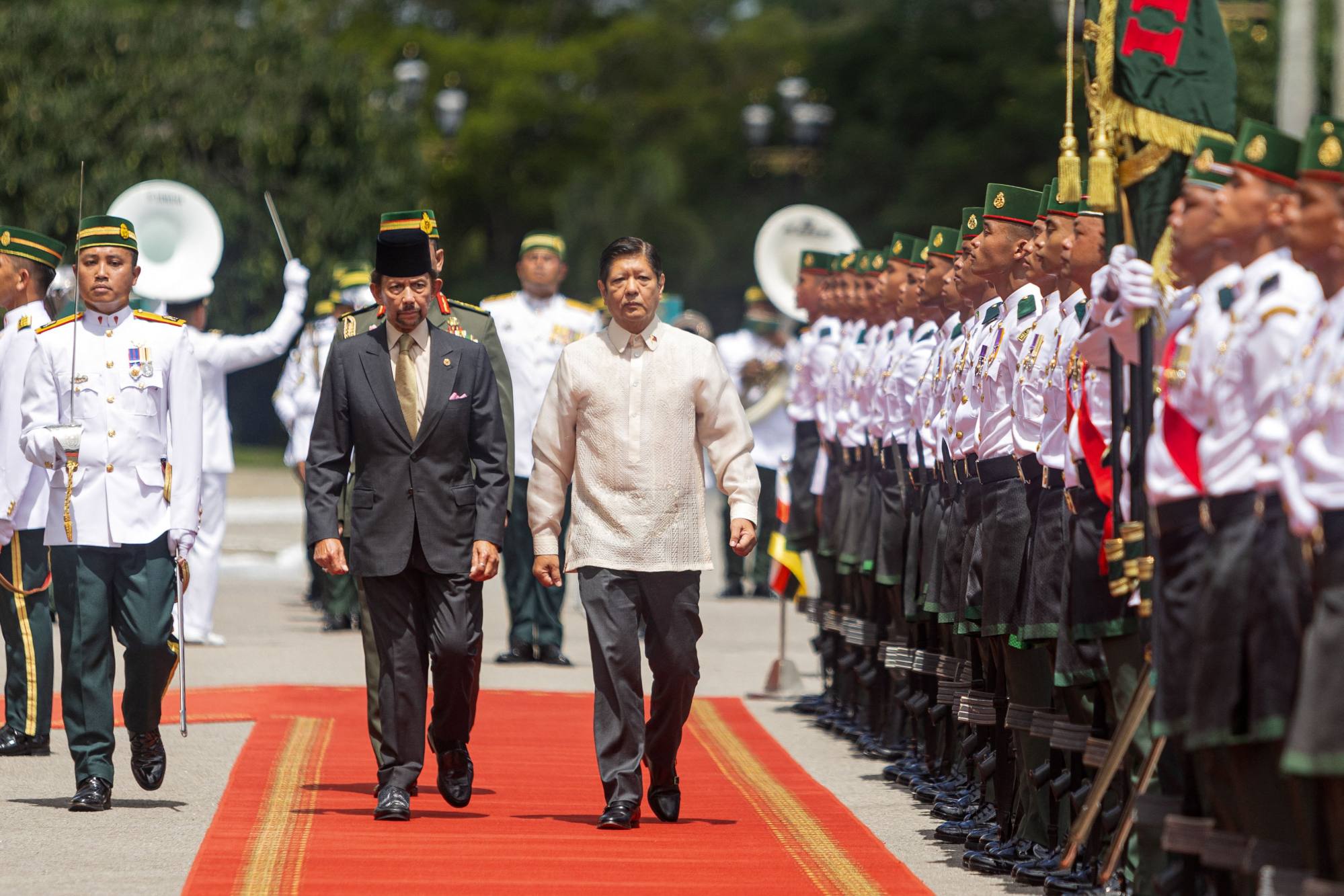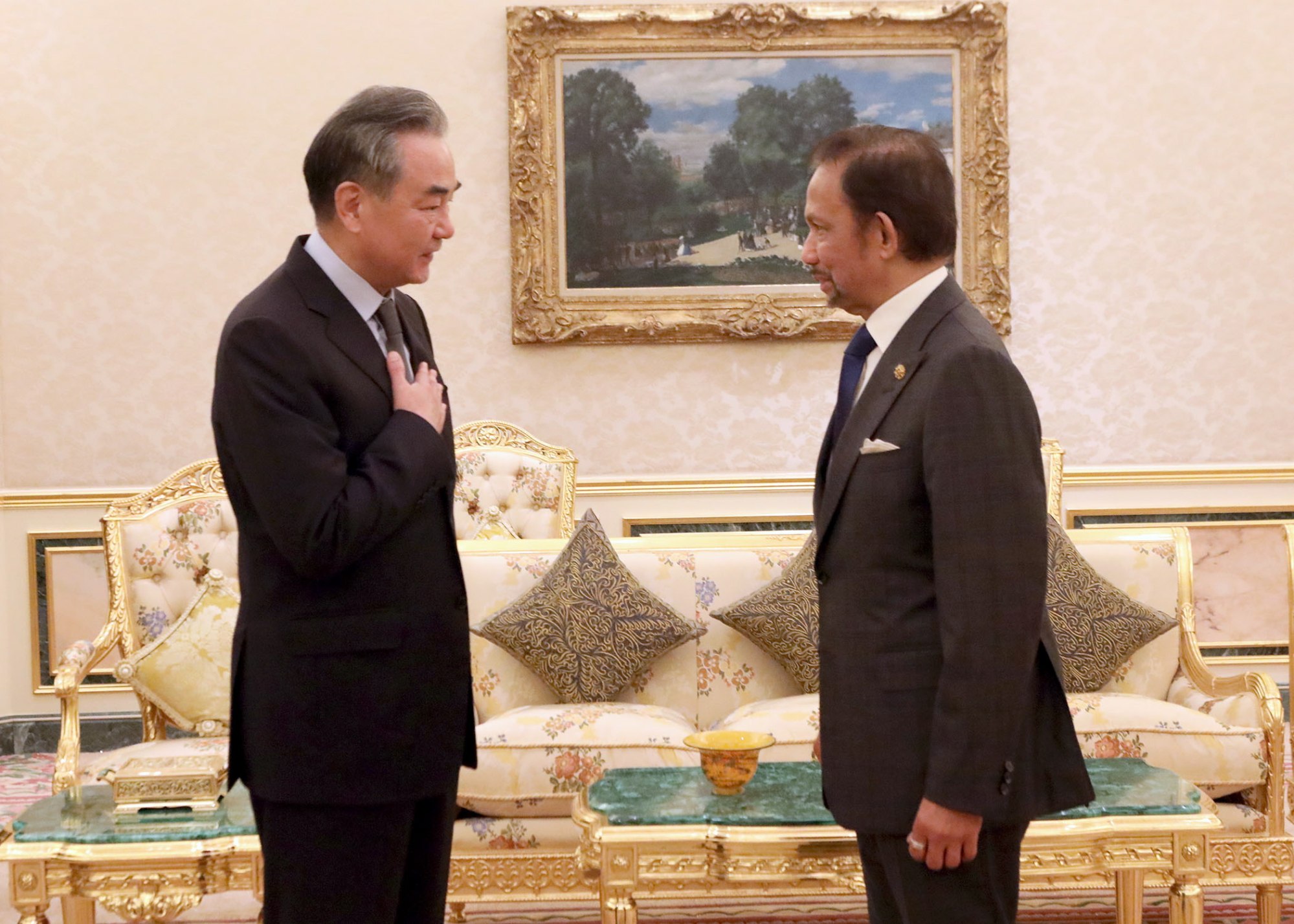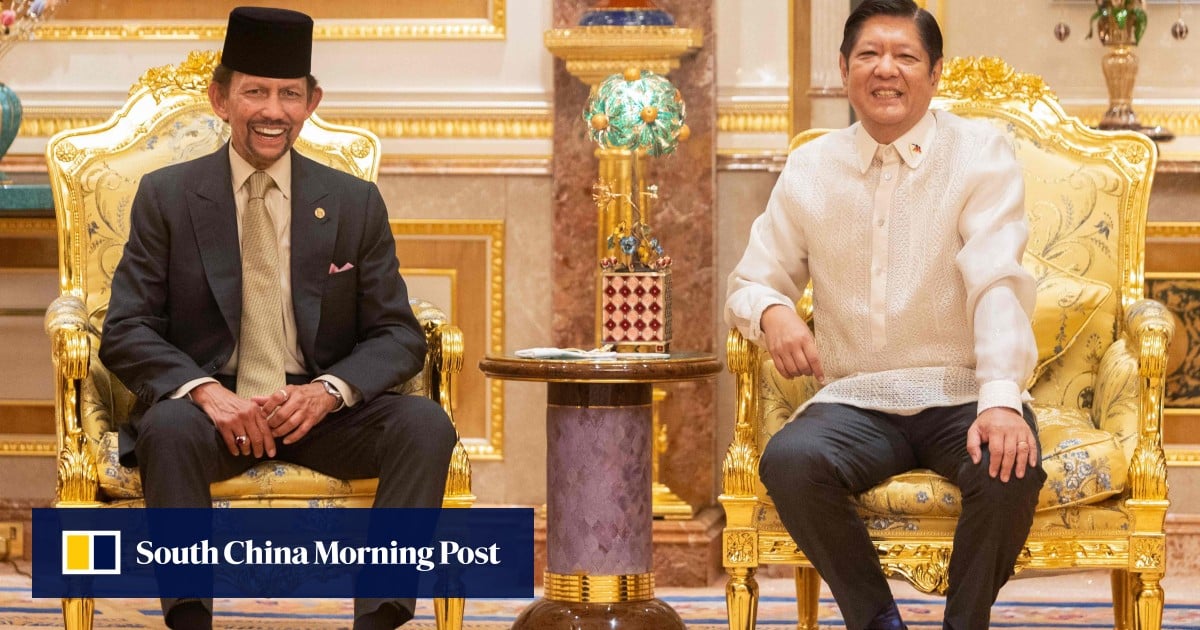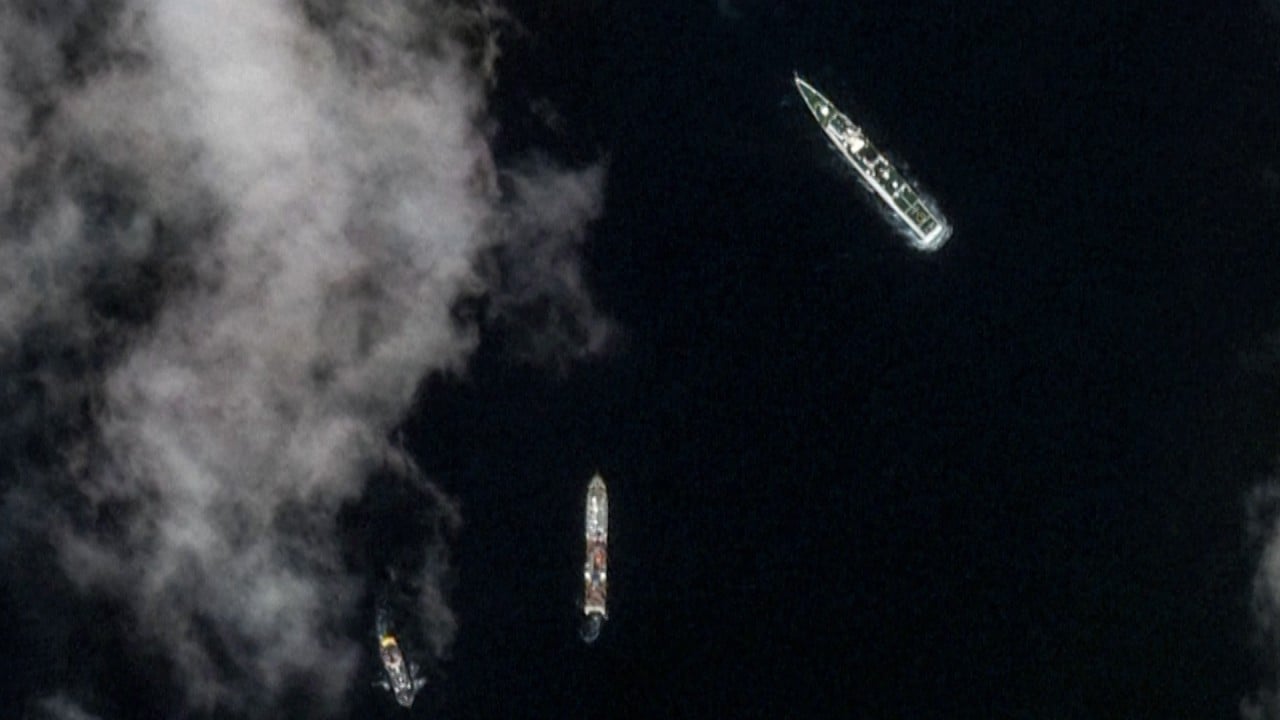At the state banquet the sultanate hosted at Istana Nurul Iman, the Brunei leader’s official residence, Marcos Jnr emphasised the importance of continuing to work together on a bilateral basis, as well as other international coalitions, “for the peace and the stability of the region”.
“And not only for Asia, but for the Indo-Pacific as well. It is important that those partnerships now be brought back into the modern world. And I look forward for this state visit to once more give an added impetus and warmth and inspiration to the relationship between our two countries,” he said.

In response, the sultan, who has ruled Brunei for nearly 60 years, said his government was committed to “further strengthen” its ties with the Philippines to “protect and safeguard our common aspiration”.
Before Marcos Jnr left for Brunei, he told the media that he would look for “ways for further cooperation with Brunei in ensuring the defence of our countries and of our region”. However, it is not clear if the maritime cooperation deal signed by the two leaders involves any defensive components.
The Philippines, Brunei, Malaysia, Vietnam and China have competing claims in the South China Sea. In 2016, the Permanent Court of Arbitration at The Hague dismissed China’s claims to the South China Sea but Beijing rejected the ruling, insisting it has jurisdiction over all the territory located within the so-called nine-dash line used on its maps.
In contrast with Manila’s increasingly confrontational stance towards China’s maritime territorial claims, Brunei’s stance on the South China Sea dispute is notably subdued. It claims a 200-nautical mile exclusive economic zone but avoids occupying disputed features or maintaining a military presence.
Brunei has stated it prefers peaceful bilateral negotiations, which observers say is influenced by significant economic ties with and investments from China, which limit its opposition to Beijing’s claims.
Gill said Brunei, regardless of its silence, was a claimant state in the South China Sea dispute and coordination was crucial if Manila sought to illustrate its intentions of socialising its position with its immediate neighbours in Southeast Asia.
“The MOU will illustrate that, contrary to the region’s misperception that the Philippines only wants to bring in external military powers into the region, Manila wants to deepen intraregional maritime security cooperation with its neighbours to spearhead home-grown solutions,” Gill said.
Manila was probably aware that such an MOU with Brunei had its limitations, given the latter’s proximity with Beijing, but it was still important amid the uncertainties in the region, Gill said.
“In this context, socialising pertains to deepening coordination and diplomatic engagements with Brunei to allow it to become more familiar with Manila’s position. Maritime cooperation is an important prerequisite for deeper talks on maritime security issues. So it is a helpful gateway for closer Philippines-Brunei security cooperation,” Gill added.
Jennifer Parker, associate at the National Security College at the Australian National University, said while Brunei and the Philippines could seek to work together on naval exercises and training under their new maritime cooperation as they had done in the past, it was unlikely Brunei would be comfortable with any of these activities being considered attempts at countering China.
“Brunei and China have significant ties, including a significant amount of Chinese investment in Brunei,” Parker said.

China has become Brunei’s largest source of foreign investment and its third-largest trading partner. In October 2022, bilateral trade between Brunei and China reached US$2.53 billion.
Asked whether the maritime cooperation would fit into Manila’s larger efforts at building a regional coalition to counter Beijing in the South China Sea, Parker said the deal was not only about China and should also be viewed through the lens of a deepening bilateral relationship, which was important given their proximity and dependence on the same maritime domain.
“It is highly unlikely Brunei would choose to be more assertive against China, given the close economic ties between the two countries,” Parker said.
Security analyst Joshua Espeña, a resident fellow and vice-president of the International Development and Security Cooperation, said since Brunei was sensitive to a confrontation with China, it could work based on functional cooperation on maritime security through the Brunei Darussalam-Indonesia-Malaysia-Philippines East Asean Growth Area (BIMP-EAGA) security leg initiatives.
BIMP-EAGA is a regional cooperation initiative aimed at enhancing trade, investment, and tourism in less-developed areas of member countries through infrastructure projects and collaborative efforts in various sectors.
“Brunei cannot be expected to be proactive given its relatively limited capabilities to confront China. However, it can support regional initiatives that uphold the rules-based order pushed by Manila,” Espeña said.
“Brunei hosts British forces, who have reasons to support US leadership in the Indo-Pacific. This can indirectly provide signals to support US presence in the region. While Brunei’s legroom is limited, the Philippines can leverage mini-lateral approaches.”


